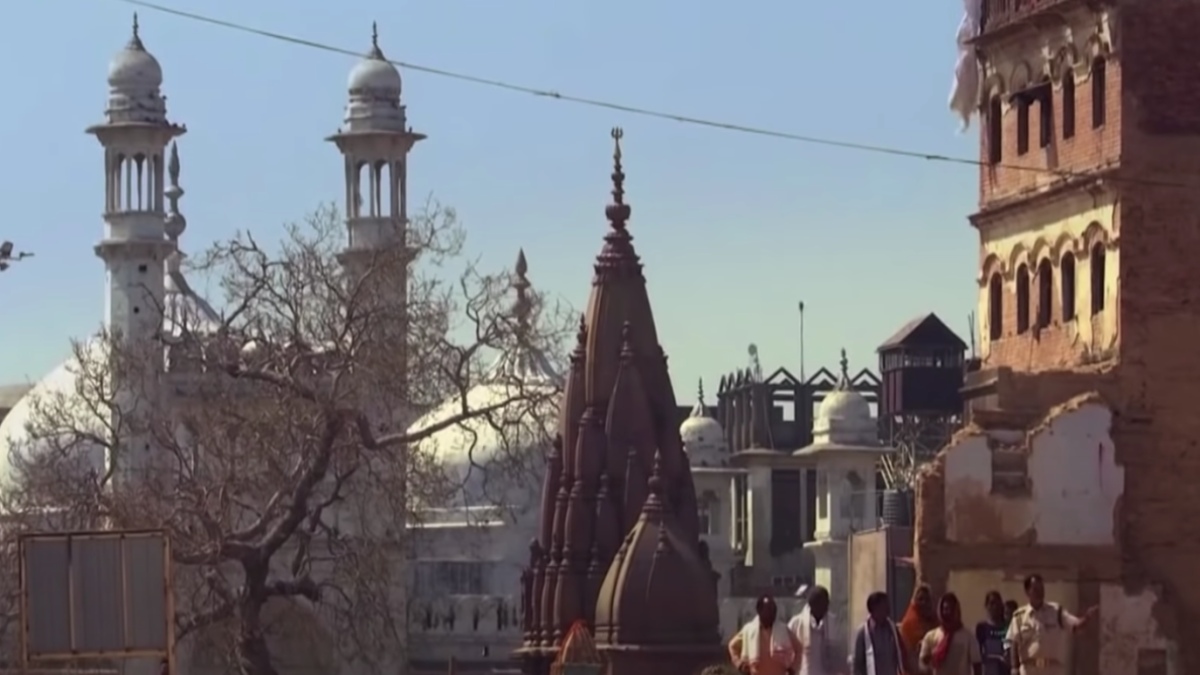


The Varanasi Court dismissed the Anjuman Islamia Masjid committee’s petition filed under Order 7 Rule 11 CPC, wherein, challenging the maintainability of the suit filed by five Hindu women (plaintiffs) seeking worshipping rights in the Gyanvapi Mosque compound.
The bench of District Judge comprising of Ajay Krishna Vishwesha in the case observed that the suit of the plaintiffs is not barred by the Places of Worship (Special Provisions) Act, 1991, the U.P. Shri Kashi Vishwanath Temple Act, 1983 and the Waqf Act 1995 as was being claimed by the Anjuman Masjid Committee (managing the Gyanvapi Masjid).
It is observed that the Anjuman Islamia Committee’s challenge to the maintainability of the suit has been rejected. further the Varanasi Court will hear the suit of the Hindu worshippers.
However, regarding the applicability of the Places of Worship (Special Provisions) Act, 1991 as a bar to the suit filed by the Hindu women worshippers. It was specifically held by the court that since the Hindu deities were worshipped inside the masjid complex even after August 15, 1947 (which is the cut off date provided under the Places of Worship Act); therefore, in this case this act will have no applicability here in this case.
In the case the plaintiff is demanding the right to worship Maa Sringar Gauri, Lord Ganesh, and Lord Hanuman at the disputed property, however, the civil court has the jurisdiction to decide this case. Further, according to the plaintiffs pleadings, they were worshipping Maa Sringar Gauri, Lord Hanuman, Lord Ganesh at the disputed place incessantly since a long time till the year 1993. After 1993, they were allowed to worship the above mentioned Gods under the regulatory of State of Uttar Pradesh only once in a year. As per the plaintiff, they worshipped Maa Sringar Gauri, Lord Hanuman at the disputed place regularly even after 15th August, 1947. The court remarked that the Places of Worship (Special Provisions) Act, 1991 does not operate as bar on the suit of the plaintiffs and the suit of plaintiffs is not barred by Section 9 of the Act.
The court noted that the provisions of the 1991 Act make it clear that all places of worship existing in the country will remain as they were on August 15, 1947, and cases seeking conversion of a place of worship to that of another religion or the faith “shall abate’.
The court noted that the Hindu Women Worshipper’s i.e., the plaintiff are claiming only the right to worship at the disputed property and that they want to worship Maa Sringar Gauri and other invisible and visible deities with the contention that they worshipped there till the year 1993.
Further, the court stressed that the plaintiffs are not claiming ownership over the disputed property as they have not filed the suit for declaration that the disputed property is a temple and therefore also, the Places of Worship Act has no applicability as the plaintiffs are not seeking a declaration or an injunction over the property.